Research study on the health impacts of inactivity
Transcript
What do a 70-year-old on bed rest and an astronaut have in common?
Their muscles are getting weaker.
They are experiencing the effects of aging and frailty, often related to a lack of physical activity.
In space, astronauts' bodies grow weaker, mostly due to not having to work against gravity to support themselves.
We know exercise is important for their minds and bodies, but what else can help minimize the health effects of space?
And what can older adults do to counteract the effects of inactivity?
A new study, the first-of-its-kind in Canada, will provide some answers.
Eight research teams will study the health impacts of an extended period of inactivity—and how to minimize the effects.
This research will follow men and women, between the ages of 55 and 65, taking part in an inactivity study.
This type of study is commonly used in space research as it reproduces, on Earth, the health changes experienced in space.
Study participants will stay in bed for two weeks, with some of them carrying out High Intensity Interval Training, three times a day.
The results will help us find solutions:
- to make space travel safer
- to improve the quality of life of older adults,
- to address the health effects of extended periods of inactivity, and,
- to minimize the risks to patients transferring from one health care setting to another.
CIHR has partnered with the Canadian Space Agency and the Canadian Frailty Network in a research study on the health impacts of inactivity. This study – a first of its kind in Canada - will examine the health impacts of inactivity on the human body and the effectiveness of physical exercises in staving off the effects of inactivity in older adults.
This research, undertaken as a component of the larger Transitions in Care Initiative, will help inform how to care for older adults who undergo long periods of bed rest because of injury or illness and for seniors who experience long stays in acute and long-term care settings. There is another unique application for this research: improving the health and wellness of astronauts. Inactivity studies are commonly used in space research as they reproduce, on Earth, the physiological changes experienced by astronauts in space due to weightlessness. In spring 2021, eight teams will work jointly on the research study, which will take place at the Research Institute of the McGill University Health Centre.
- News Release: Government of Canada invests in first-of-its-kind research study on the health impacts of inactivity
- Backgrounder: A study using bed-rest as an analog to microgravity will provide data for eight Canadian research projects
Meet the research teams
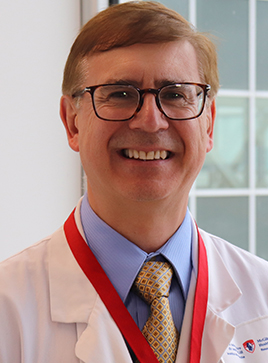
Jose A. Morais
Research Institute of the McGill University Health Centre
"Unravelling the mechanisms underlying bed rest-induced muscle atrophy and an exercise countermeasure."
Aging people and astronauts during spaceflights experience loss of muscle mass and bone density - conditions associated with inactivity. Dr. Morais’s research team will use resting in bed with head-down tilt as a model to study the effects of inactivity on the musculoskeletal system. They will study 24 men and women of 55-65 years of age engaged in moderate-vigorous exercise. Participants will be randomized into two groups for a two-week bed rest with half of them performing one hour of daily exercise while in bed as a countermeasure. In addition, participants will undergo an oral glucose tolerance test as well as an assessment of their physical performance before and at the end of bed rest. Using blood analysis and muscle biopsies of the thigh, taken at the beginning of the study, and after 3, 7 and 14 days of bed rest, the scientists will measure proteins and hormones regulating muscle and bone mass, and look at cellular processes that induce for example, muscle protein synthesis and the adaptation of muscle to training. The team hopes that this research will help design future interventions to prevent the negative consequences of inactivity.
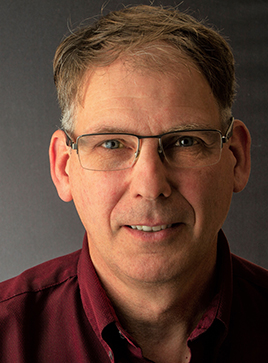
Andrew Blaber
Simon Fraser University
"From orbit to bedside: using space-based bed-rest techniques to study cardiovascular and skeletal muscle-pump orthostatic reflexes with and without a strength and HIIT exercise intervention to prevent falls in older patients after hospitalization."
It appears that astronauts who have been in space for six months can experience problems similar to older adults who have been confined to bed rest. This includes bone and muscle loss, difficulties with balance while walking, and lightheadedness after standing. The consequences of bed rest are more severe for older adults, however, because with a fall they can fracture their hips and suffer injuries that will lead to decreased quality of life and mortality. In previous work, Dr. Blaber's research determined that 60 days of bed rest with middle-aged participants affected the leg's ability to pump blood back to the heart (which can lead to fainting). With this study, his team will analyze whether in-bed strength and high-intensity interval training among older participants can reduce these effects and maintain posture control on blood pressure over a 15 day period. Dr. Blaber's team will also look at reflexes related to skeletal muscle activity, and determine where specific biomarkers identify a decline in a protective layer that helps nerve cells quickly transmit information through electrical impulses.
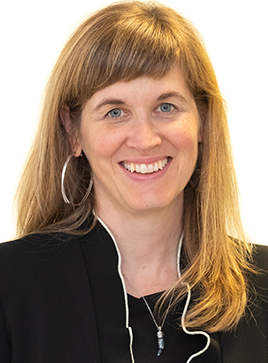
Isabelle Dionne
Université de Sherbrooke
"Exercise as a countermeasure for inflammation processes and loss in neuromotor drive following muscle disuse: the SAFE randomized controlled trial"
When elderly patients and astronauts do not use their muscles for an extended period of time, there can be negative health consequences. In order to fight this problem, Dr. Dionne has developed a SAFety and Effectiveness (SAFE) randomized control trial that will examine the outcomes of healthy participants (aged 55-65) after they have used a structured exercise regimen. Participants will be in bed for 24 hours a day over a two week period. Half of them will be assigned to a control group that receives physiotherapy and psychological support, while the other half will be part of an intervention group that receives physiotherapy, psychological support and an hour of daily exercise. Through use of blood and muscle biopsies, researchers will then determine whether physical and neuromuscular changes have occurred among the participants after the intervention over a 7 day, 4 week, and 4 month period. The results could possibly lead to better overall care for people who are either astronauts or frail. Dr. Dionne's team will include trainees, and young, mid-career, and senior researchers who have expertise in aging, exercise and muscle function, and biostatistics.
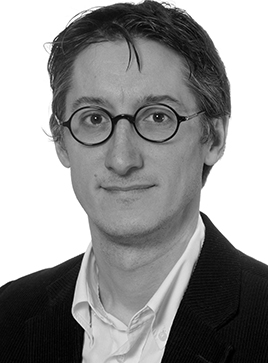
Simon Duchesne
Université Laval
"Ensuring mission success and optimal aging: disentangling the impact of simulated microgravity on brain health"
It is important for people to maintain optimal brain health if they want to sustain high overall thought processes. Unfortunately, astronauts who spend a long time in space can experience negative factors that affect their brain health as well as impacts that are similar to aging. Because this could potentially jeopardize future missions taken by astronauts to the moon or Mars, it is important to understand these impacts and develop ways to alleviate them. Any proposed solutions could also help older adults avoid the debilitating effects of inactivity on their brains and target the early effects of neurodegenerative threats, such as Alzheimer's disease. By using a two week bed rest study with 25 participants (aged 55-65), Dr. Duchesne will simulate lack of gravity in space on Earth by testing the effects of inactivity on their brain health through various metrics of magnetic resonance imaging, and cognitive tests that evaluate their memory, language, reasoning, and judgment. His research team will also determine whether physical activities used by the participants in bed can help prevent the negative effects of inactivity. Hopefully, Dr. Duchesne's findings will be useful for astronauts who take future ventures into space, and improve the overall healthcare of older adults who suffer from inactivity and neurodegeneration.
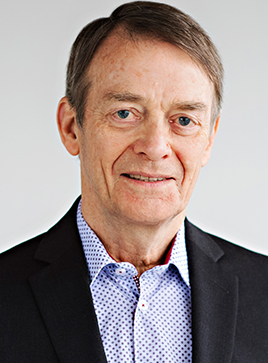
Richard Hughson
University of Waterloo and Schlegel-UW Research Institute for Aging
"Bed rest in older adults accelerates 'aging-like' changes"
Older adults confined to bed rest experience less use of their heart, muscles, and bones, and this ultimately leads to major health problems. Dr. Hughson's research team has studied these 'aging-like' side effects, such as arterial stiffness and insulin resistance, among astronauts who greatly reduced their activity levels while they floated in space. For this study, Dr. Hughson will monitor the effects of bed rest on participants by analyzing their cardiovascular, muscular, skeletal, metabolic, nutritional and cognitive health. By evaluating the participants at chronological (actual age) and biological (age based on blood biomarkers and physical condition) levels, Dr. Hughson will determine whether people who are biologically older experience larger health threats because of bed rest. The study will also help his team determine whether chronologically older adults who maintain an exercise regime while in best rest can stay in good health. Ultimately, the goal is for astronauts, older adults, and health care providers to further understand the risks of physical deterioration without daily exercise.
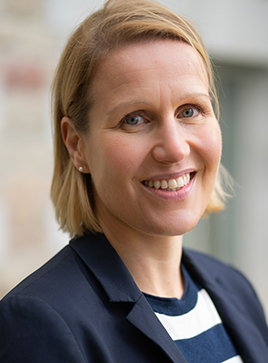
Saija Kontulainen
University of Saskatchewan
"Impact of inactivity and exercise on muscle and bone marrow adiposity"
Similar to astronauts in space, inactive older adults on Earth may experience bone loss due to the accumulation of fat tissue in their muscle and bone marrow. With the help of 24 male and female participants between ages 55 and 65, Dr. Kontulainen's research team will study whether use of exercise can prevent these problems. An exercise group of participants will do daily cycling and resistance training to strengthen muscles in their arms and legs over a 14 day period of bed rest, while the control group will remain inactive for the same amount of time. Using advanced imaging tools, including their new compact magnetic resonance imaging prototype for the International Space Station, Dr. Kontulainen's team will measure tiny pores in bone (or bone porosity), as well as the muscle and bone marrow fat in the lower legs and forearms of participants before and after bed rest. This will help determine if the increase in bone porosity is caused by an accumulation of fat during bed rest and prevented by exercise. It could also lead to the development of exercise interventions that can stop fat accumulation and bone loss among older adults who are inactive, and astronauts who are on missions in space.

Teresa Liu-Ambrose
University of British Columbia
"The Impact of Physical Exercise on the Inactive Body and Brain"
When adults age, they can be less physically active for various reasons. Some of the primary causes include dementia, or a decline in their overall function due to bed rest (because of injury, surgery, or hospitalization). Unfortunately, there is not a lot of research that demonstrates how physical activity can help prevent the negative effects of bed rest on older people who suffer from injury/illness as well as cognitive impairment. In this study, through use of participants aged 55-65, Dr. Liu-Ambrose's research team will analyze whether use of moderate to vigorous physical exercise on a daily basis will have a positive effect in these domains over the course of 14 days. Given that cognitive impairment can lead to immense health and financial burdens in Canada, her team's results will develop future rehabilitation strategies that may both positively change the path of cognitive aging among older adults who are physically inactive and help ease their overall transitions in care.
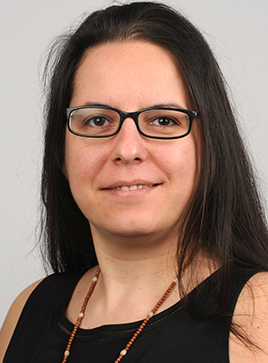
Olga Theou
Dalhousie University
"The impact of prolonged bed rest and exercise on frailty and frailty-related biological markers."
Being inactive and spending most of the day in bed can worsen a person's health and may speed up the aging process. Interestingly, there have been similar health changes noticed among those confined to bed rest as astronauts observed in space. With this study, using a frailty index tool that measures how fast a person ages, Dr. Theou's research team will determine the impact of inactivity on the health of 24 study participants who are between 55 and 65 years old. Specifically, they will look for differences in frailty levels between those who exercise during bed rest over 14 consecutive days and those who remain still. The team will also study whether changes in frailty levels can be explained by modifications in the participants' blood, inflammation levels, and microorganisms (like bacteria or viruses). By understanding what is happening at a biological level, Dr. Theou's work will ultimately help address frailty in older adults when they are confined to bed rest (such as when they are hospitalized). The results may also protect the health of astronauts when they take future trips to space.
- Date modified: